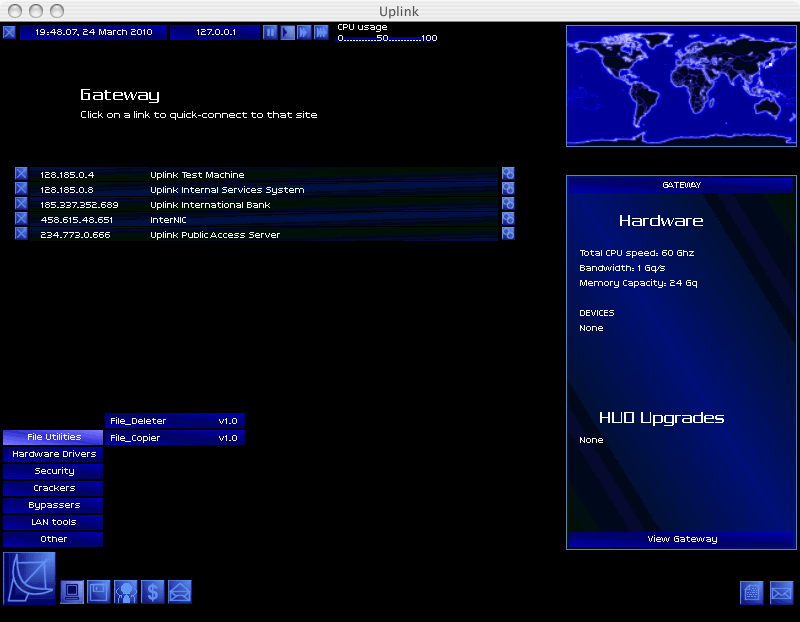Cyberpunk Deserves Better than Cyberpunk 2077
CD Projekt Red’s Cyberpunk 2077 has come and seemingly gone, with greater attention paid to the miserable crunch endured by its development team and disastrous showing on last-gen consoles than the game itself. The irony of a game about corporations that disregard the well-being of those they employ in pursuit of greater profits being developed by a corporation that disregarded the well-being of those they employed in pursuit of greater profits was lost on absolutely no one. In many ways, the dystopian future envisioned by cyberpunk authors has already arrived. In fact, I’d argue that we’ve been living in it for so long that it’s become banal. In any event, with more measured critics judging Cyberpunk 2077 to be superficially ambitious but ultimately hollow, it’s clear that its eponymous genre has officially jumped the shark.
A Once-Great Genre
When cyberpunk first arrived on the scene, in literature and in games, it was a bold and departure from the broader sci-fi genre, focusing on gritty, precarious lives of those on the margins of advanced, near-future societies. Many of its influential texts, such William Gibson’s Neuromancer and Richard K. Morgan’s Altered Carbon, are as much inquiries into the essence of humanity as they are visions of a dystopic future. The dehumanizing effects of digital and corporate ascendancy so frequently illustrated in cyberpunk are part of that inquiry, but the genre ponders more fundamental questions as well. What are the social, political, moral and philosophical implications of technologies that blur the line between humans and machines such that they can no longer be readily distinguished? Can a life augmented by technology, lived beyond the historic limitations of human existence, be considered human at all? Cyberpunk is at its best when it enables us to pursue answers to such questions within an elaborate but grounded techno-fantasy. Alas, Cyberpunk 2077 is hardly the first game in to disappoint in this regard. Cyberpunk simply deserves better from interactive experiences. That said, there are a handful of PC game evocative of cyberpunk that I’ve really enjoyed over the years. Among them, Ion Storm’s Deus Ex and Westwood Studios’ Blade Runner are well-known, well-lauded examples, but there’s another title that’s garnered far less attention that I feel stands shoulder-to-shoulder with the best in the genre.
A Brief Digression
As a child in the early 90s, I was fortunate to have had a 386SX-20-based IBM Compatible all to myself. On rainy afternoons I’d fire up a hand-me-down Hayes 2400 baud modem and dial the BBSes listed in the back of PC Magazine. One day, while perusing a somewhat unsavory portal, I stumbled across a piece of software with the rather unusual description - something along the lines of ‘NORAD Command and Control Program’. Intrigued, I downloaded it and on launch, was greeted by a dire, all-caps warning about unauthorized use of confidential military software which I blithely ignored. This was followed by a login screen, which I populated with what my 8-year-old self considered to be likely military credentials: User name: Reagan Password: bonzo. To my surprise (and delight), these were accepted and I was presented with a command interface complete with radar scopes, Air Force squadron readiness indicators, and a list of nuclear missile silos with prominent LAUNCH buttons, highlighted in red. Even as an 8-year-old, I strongly suspected this to be a prank - it had to be, right? Still, after only a few seconds basking in the glow of its authentically utilitarian interface, I lost my nerve and dove under the desk to rip the modem cord out of the phone jack. In all my misspent years of computing, only other piece of software that’s given my that unique feeling of panic and doubt: Introversion Software’s Uplink: Hacker Elite.
Console Cowboys Wanted
Rather than apply a cyberpunk veneer to an existing PC game genre, Uplink offers a fully-realized simulation of a cyberdeck jockey’s bread and butter, breaking into corporate and government networks to exfiltrate or subtly modify sensitive data. The game’s presentation consists of nothing more than a sleek, vaguely retro-futuristic computer desktop environment wherein you receive jobs via an e-mail client, orchestrate hacks using built-in and purchased utilities, and spend reward money on new infiltration software and faster cloud hardware to carry out yet more audacious hacks. Legit 90s-era hacking techniques are combined with more theatrical elements like accelerating geographic traces to produce heart-pounding drama. I guarantee that when the last megabyte of sensitive data finally hits your disk and you sever your connection a moment before the authorities home in on your gateway you will raise your fists in Kevin Mitnick-esque triumph. And if you blow it, well, at least you don’t have to go to jail!

An intricate, conspiracy-laden plot woven into Uplink’s mission-based gameplay provides a bit of narrative structure and ticks the boxes for consideration as one of cyberpunk’s few interactive masterpieces. The game is still available on Steam and can be further improved with the sublime Uplink OS mod.